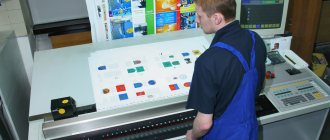Today, many people strive to open their own business and thereby gain financial independence. But the world of business is not as simple as it might seem at first glance. Special laws reign here, according to which only the strongest survive. It is not without reason that well-known entrepreneurs advise newcomers to always keep their eyes open, otherwise competitors will devour them in an instant.
But how do you understand what’s what in a world where big money rules? The answer is simple: study the experience of famous businessmen and draw the necessary conclusions. But for this you need to know who they are - the most famous entrepreneurs in Russia and abroad.
general information
First, let's define what entrepreneurship is. It should be noted that there is no single, universally accepted interpretation. But in order to have an idea of the object of consideration, the article will combine several of the most popular ones. So, entrepreneurship is an activity accompanied by great risk, which is aimed at obtaining the maximum possible profit and is a manifestation of economic freedom. Let's look point by point.
What it is?
There is no need to look for a hidden bottom where there is none. The essence and meaning of the word “entrepreneurship” lies on the surface - it is a derivative of the word “undertake”, i.e. do something. And the realities of a market economy add clarification to the essence of the concept: any actions are performed for a reason, but with the aim of generating income.
Conclusion: entrepreneurship is an activity aimed at systematically obtaining material benefits .
Entrepreneurial activity (EA) can be carried out by both an individual and a legal entity. It is logical that a person engaged in entrepreneurship is called an entrepreneur . You can read more about such persons and how to obtain official entrepreneur status in another article on our blog.
A legal entity is a priori engaged in entrepreneurship, because it is (mainly) created to carry out commercial activities, i.e. entrepreneurial activity.
It is worth considering that PD is conducted by a physical person. or a legal entity independently, at your own risk. This means that the entrepreneur is not immune from failures , material losses and even bankruptcy.
The entrepreneur himself decides what and how he will do, what resources to use and how to run his business.
Who wants the book '7 professions for making quick money online'?
Meet the book that will destroy stereotypes and tell you where to start! Get the book right now and find out how to make your life brighter in the coming days! Get.
Important: activities related to one-time income generation are not considered entrepreneurship.
For example, if a student sold his outdated computer and received income, then this one-time share cannot be considered PD.
The scope of activity of an entrepreneur is almost limitless, of course, within the framework of current legislation. Business (what is it?) can be associated with the ownership of property (for example, renting it out), with the resale of goods, with the sale of home-made products, with the provision of services in various fields, etc.
Any entrepreneurial activity is impossible without attracting financial resources. Possible sources of funding :
- own savings of the person planning to maintain personal data;
- attracting investments from parties interested in the results of PD;
- lending from banking organizations or individuals;
- government assistance (grants and subsidies).
Details about entrepreneurship
So, if you want to engage in such activities, you need to understand that:
1. Entrepreneurship is work whose goal is to obtain maximum profit. The efforts of both the company owner and its employees should be directed towards this. Examples of entrepreneurial activity in this case are Coca-Cola, Roshen, AVK, Pepsi, McDonald's. Each of these companies has its own corporate culture, which is aimed at prosperity.
2. Entrepreneurship is work that is carried out at your own peril and risk. Moreover, they are incredibly large and can have significant consequences. Let's turn to the experience of the countries of the so-called West. Statistics show that approximately 80% of businesses that are created die within the first year of their activity. And after 50 years, only 1-2% of companies remain “alive”. The reason for this “pestilence” is a significant underestimation of risks.
Pat Flynn
Pat Flynn is a great example of an entrepreneur who is very transparent about his business, to the benefit of those who want to follow in his footsteps - for example, he openly shares his monthly income reports on his website Smart Passive Income and has an extremely popular podcast where he shares topics , what I learned while working for several online companies.
Pat trained as an architect, but, as he recounts in his book Let It Go, he was fired before he even started his career. Luckily, he had great success with the first website he created to help people pass the notoriously difficult architecture exam. By collecting and selling a book on the same topic, he was able to earn over $7k in the first month and continues to make money from it to this day.
He now says that getting fired was the best thing that ever happened to him:
“Without my 9-5 job, I couldn't contain myself, and since then I've been able to earn more money and work less (and more flexibly), which ultimately allows me to be at home and spend time with my family.”
Production
In this case, it means working on the creation of specific goods, works, or provision of services. This type of entrepreneurship is considered quite complex and at the same time costly, because for practical implementation it is necessary to have working and fixed assets, as well as employees. It is even possible to involve third parties. An important indicator of efficiency is profitability and development plan. Examples of enterprises carrying out business activities in this direction are construction, engineering companies, commercial structures of light industry, etc. Famous ones include Nike and Adidas. Less known are Elektronmash and the Kharkov Tractor Plant.
Agriculture
Engaged in growing food products. Since there is often no large capital, a variation such as farming is popular among entrepreneurs. Last but not least, the choice in favor of this status is made due to the absence of the need to create a legal entity and the opportunity to register as an individual entrepreneur. Highly specialized farms are quite profitable and efficient. In the last ten years, growing exotic crops has become popular. For example, mushrooms. Moreover, these can be either ordinary champignons or something more refined and elite. Examples of entrepreneurial activity in this sector prove that there is a need for mushrooms. What do people do who want to grow such unusual food? They find or build a closed, dark room, supply it with everything they need, and begin to work. Moreover, if you look at the results of their activities, you can see that they are not in poverty. Agriculture is a profitable direction, because the world's population is constantly growing, and food is becoming more and more necessary. If you want to act in this direction, you should know that the legislation distinguishes between individual and family-group farms. They have their advantages and disadvantages, and everyone makes their own choice which is better.
Oliver Bogner, 19 years old: organizing a reality show
- Chapman University Sophomore
- Company: Bogner Entertainment
When Oliver Bogner was 13 years old, he persuaded his grandmother to become his first investor. With the $1,000 he received, Oliver wanted to buy audio equipment to train as a DJ. By the age of 15, as a high school student in Beverly Hills, he had raised more than $100,000 by hosting about 100 dance parties in a year, with 15 friends working for him.
Oliver's father, a 51-year-old producer, suggested to his son that he could make it in reality television. Olivier came up with the concept of "Party Prince 90210", which was immediately bought by one of the cable channels. The show didn't make it past the pilot, but Bogner didn't give up. “I was terribly inspired,” he recalls. “I realized what I wanted to do for the rest of my life.”
At age 19, he became the youngest executive producer of reality TV in Los Angeles. Bogner came up with about 50 reality show concepts. A dozen of them were successfully sold to cable channels, including Oxygen, Animal Planet and Lifetime. When an idea sells, Bogner receives between 3% and 10% of the production budget. According to him, he has already earned about $100,000 from the deals. None of Bogner's concepts have yet been aired as a series, but there have already been specials: Oxygen picked up his dating show Love Scouts, and two more shows will air this fall (one of them, Addicts & Animals, about a California family that rehabilitates drug addicts with the help of animals).
At first, Bogner was going to attend the University of Southern California, which is widely known in the entertainment industry. But after walking around the huge campus with 35,000 students, I realized that I would like to study at a smaller university and chose Chapman University. “I felt like the university needed a guy like me to make a name for it,” the sophomore boasts.
Commerce
It is characterized by operations and buy/sell transactions, during which goods and services are traded. On the territory of the Russian Federation, this is perhaps the most common type of entrepreneurship. A large number of both small businesses and individuals take part in it. This activity requires mobility, quick adaptation to needs, because it is connected with the specific needs of the population. The entrepreneur himself is not directly involved in the production of goods, but only sells them. In this case, an example of entrepreneurial activity is the purchase of goods in the People's Republic of China with subsequent resale to the population of the Russian Federation. Moreover, it is carried out, as a rule, with a markup of 400-500%. Why is that? The fact is that when commercial entrepreneurs order certain products, their consumer is the market. That is, there is no specific person who would agree to buy the item immediately. Therefore, due to the likelihood of failure (no one will want to), loss (“Russian Post” did not deliver the parcel), low initial cost and speed of implementation, commercial entrepreneurs create such large markups. These are the features of entrepreneurial activity in this case. Examples from world practice generally often indicate that simple resale requires a significant increase in price. And if advertising is also carried out, then in this case its budget may exceed the cost of production in price.
Peter Thiel
Peter Thiel during the 2020 presidential race. Photo: ©Andrew Harrer/Bloomberg/Getty Images
One of the most influential investors of our time, the founder of the PayPal payment system and financial tycoon is Peter Andreas Thiel, a role model for many. Having emigrated to the States at a young age, he became one of the best chess players as a teenager, was a successful trader at age 25, and by age 29 had already founded his own fund.
The guy’s rapid career is connected primarily with his openness to science. Receiving a Bachelor of Arts degree did not stop Thiel and, having sharply changed his vector, he begins to master a new branch of economic relations. As a result, the foundation of the famous payment system, which will then be sold for 1.5 billion US dollars.
But Peter got into our selection thanks to his strategic decision. It was he who was the first to invest in the still unknown social network Facebook, one of the first to believe in the potential of LinkedIn, Yelp, Xero, Yammer and many others. In addition, Thiel predicted the possible emergence of a financial crisis and the collapse of the real estate market, which occurred in 2007.
As is often the case, little is heard about such people (unlike the aforementioned Musk, who is inseparable from the press). But, nevertheless, their rare appearances in public are always accompanied by heated discussions. Every young entrepreneur on Earth dreams of hearing Peter Thiel’s advice and wishes, because it is precisely because of his powers of observation and analytical capabilities that more than one Silicon Valley startup is thriving. Now the German with an American passport is focused on working with his venture funds and trying to increase his already considerable fortune.
Innovation activity
It is an innovative process specializing in the creation and commercial use of technical and technological innovations. This is a particularly risky activity, even against the general background of entrepreneurial activity. After all, expenses are required for scientific research, design work, and organization of pilot production. And this is without any guarantee of getting results at all. Because of this, innovation activity largely remains the province of states. If the private sector is working on something, it is more in the bosom of practical science. While few people want to develop the theory due to the impossibility of obtaining a quick and effective result that can be quickly translated into a commercial plane.
Where can you turn around?
There are three main areas in innovation activity:
1. Products. Most often it occurs in the form of a radical update of the company’s potential, which entails an increase in profits, strengthening of market positions, strengthening independence, maintaining and acquiring clientele.
2. Technology. Aimed at updating production potential, increasing labor productivity, as well as saving raw materials and resources.
3. Social innovation. They are used to mobilize personnel, expand recruitment potential, and improve the quality of the workforce.
This activity involves going through four stages: searching for an idea with its subsequent evaluation, drawing up a plan, finding the necessary resources and entrepreneurship itself. It is believed that this is the most profitable option for small businesses, since it provides high flexibility and dynamism of development.
About specific companies
Here are the various types of business activities listed. Examples have been given, but they are few. And this needs to be corrected. So let's talk about innovation. Companies that operate in this area can often boast of fame. The same Facebook, Google, Microsoft, SpiceX, Oracle are the pioneers of humanity. They create amazing and unprecedented technologies. They are expensive. But many treat them with caution. Let's look at Facebook and Google. The capitalization of these companies is approximately the same - at the end of the summer of 2020 it exceeded half a trillion dollars. Revenue is also similar, in the range of twenty to thirty billion dollars. On the one hand, this is an example of high-quality implementation. But if you compare it with enterprises in another field, certain doubts may creep in.
Let's take as an example their competitor in terms of capitalization - the Walmart chain of stores. With the same estimated value, it reached an annual turnover of... 268 billion dollars! Of course, the net income is not that big. But Google, which has earned a little more than $28 billion in total revenue, has a significant infrastructure, a large number of employees and various projects in which it invests. As you can see, everything is clearly ambiguous. There may be various forms of entrepreneurial activity; the examples discussed in the article give only an approximate idea of the current state of affairs in the world.
Elon Musk
Elon Musk. Photo: © Brian Snyder/Reuters
When you get acquainted with the biography of this entrepreneur (as well as an inventor, investor, engineer, etc.), you initially cannot believe what you see. After all, this particular person can be considered the modern reincarnation of the mythical Midas: everything that Musk “touched” was doomed to triumph. Each of the companies he founded or the project he developed was a commercial success.
A person whose salary is $1 per year has $13.8 billion in assets as of 2020. All this was made possible thanks to a successful combination of a fresh vision of the market and successfully implemented projects, from Zip2, a startup about software for publishing content on the Internet (whose clients included The New York Times and Pulitzer Publishing), to Tesla Motors, a company whose field of activity is to create environmentally friendly cars and batteries.
But the most important thing that distinguishes this billionaire from others is the versatility of his work. This man led to success such diverse projects as: an electronic service for money transactions (he was at the origins of the success of PayPal) and a solar panel manufacturing company (SolarCity); high-speed pipeline passenger transport (Hyperloop) and a planet colonizing company (SpaceX).
Elon is a very brave businessman. His immediate plans are to create a colony of people on Mars with a population of up to a million people (which will be completely independent from the native “green” planet); on Earth, switch completely to renewable energy; create a new type of “vacuum” transport. We will be happy to follow his work, hiding our cynicism as far as possible. After all, this is Musk - a man for whom nothing is impossible 











